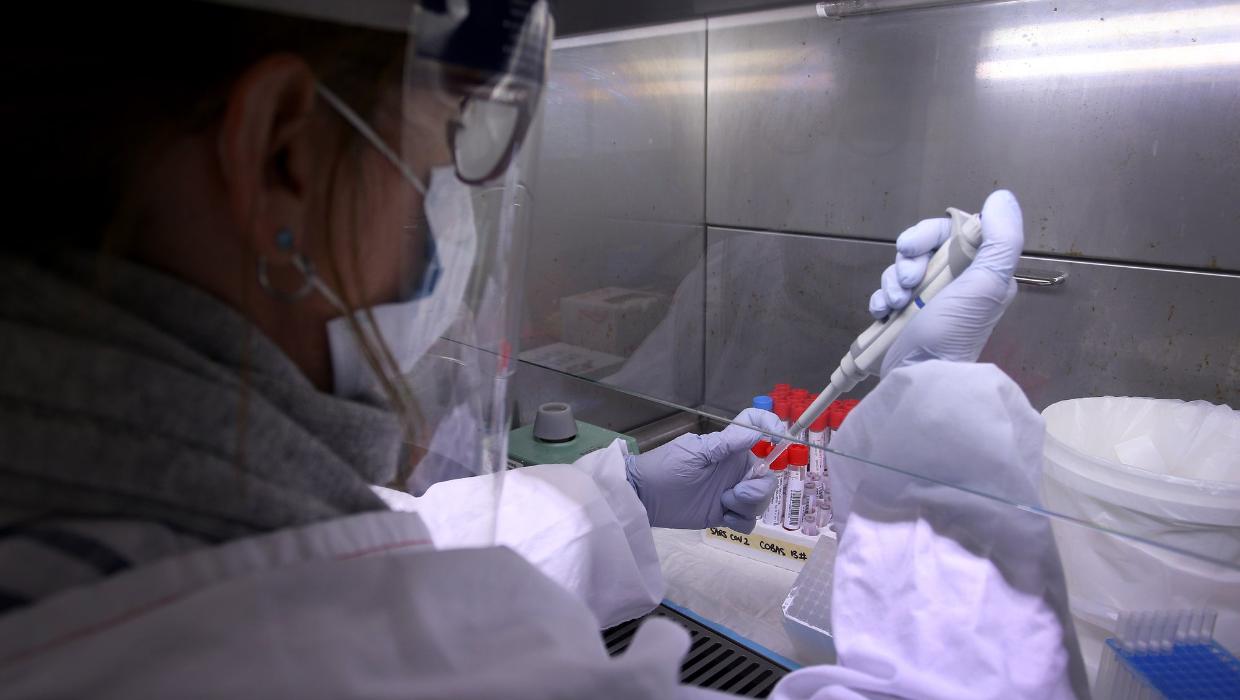Science
Innovators Alarmed as Callaghan Institute Faces Closure

The impending closure of the Callaghan Institute in New Zealand has raised significant concerns among startups and innovators about the future of research commercialization. While some programmes may continue, the overall loss threatens to diminish the support necessary for translating scientific discoveries into market-ready products.
Established to foster innovation and enhance the commercialisation of research, the Callaghan Institute has played a critical role in supporting businesses and researchers since its inception. With government funding and resources, it has enabled numerous startups to bridge the gap between laboratory research and market application. However, as the institute winds down, many fear that opportunities for collaboration and financial support will dwindle.
Startups relying on the institute’s resources are particularly anxious. According to New Zealand Innovation Minister Stuart Nash, the closure could mean a significant reduction in available support for innovators who depend on access to funding and guidance. “The loss of the institute will be felt deeply across the innovation landscape,” Nash stated, highlighting the potential impact on New Zealand’s economic growth.
The Callaghan Institute has been instrumental in fostering partnerships between private enterprises and research institutions. It has facilitated numerous projects aimed at developing new technologies, products, and services. With its closure, innovators may struggle to find alternative pathways for funding and mentorship. This raises concerns about New Zealand’s competitive edge in the global innovation ecosystem.
Innovators have expressed their worries through various forums, emphasizing that the ability to commercialise scientific advancements is critical for their success. As the government reallocates resources, many startups are calling for a strategic plan to ensure that support for innovation continues, even in the absence of the institute.
Some industry leaders argue that the government should consider alternative funding models to fill the gap left by the Callaghan Institute. This could involve increased investment in research and development initiatives or the establishment of new support networks for innovators. Without such measures, there is a risk that New Zealand’s innovation pipeline could dry up, leading to a loss of talent and expertise.
The New Zealand government is currently evaluating its options in light of the institute’s closure. While some existing programmes may persist, the overall reduction in research support could have long-term consequences for the nation’s economic landscape.
As the transition unfolds, innovators are left to navigate an uncertain future, hoping that their voices will be heard and that new support mechanisms will emerge to sustain the momentum of scientific discovery and its commercial applications. The coming months will be crucial in determining how New Zealand’s innovation ecosystem adapts to these significant changes.
Science
Innovators Alarmed as Callaghan Institute Support Winds Down

The future of scientific innovation in New Zealand faces uncertainty as the **Callaghan Institute** announces the winding down of several key programmes. This decision has raised concerns among startups and researchers who rely on the institute’s support for transforming scientific research into commercial products.
The **Callaghan Institute**, established to bridge the gap between research and market, has been instrumental in fostering innovation within the country. As it scales back its operations, innovators worry that the ability to commercialise scientific advancements will diminish significantly. The winding down process signals a crucial loss for many who depend on the institute’s resources and guidance.
While some programmes will continue, the overall reduction in support threatens to hinder the potential growth of startups. These companies often rely on the institute’s funding and expertise to navigate the complex landscape of bringing new technologies to market. Innovators argue that without adequate support, the pathway from laboratory discoveries to commercial success becomes increasingly challenging.
Many startups have expressed their concerns regarding the implications of this shift. **Sarah Thompson**, a co-founder of a biotechnology startup, stated, “The Callaghan Institute has been a cornerstone for many of us. Losing this support means we have to look elsewhere, which can be both time-consuming and costly.”
The institute’s decision comes at a time when New Zealand aims to position itself as a leader in innovation. The government’s focus on boosting research and development has been evident, but the reduction of support from the **Callaghan Institute** contradicts these efforts. According to a statement by the **New Zealand Ministry of Business, Innovation and Employment**, the government remains committed to fostering innovation but acknowledges the challenges posed by this transition.
As the landscape evolves, startups are now seeking alternative sources of funding and mentorship. Many are turning to private investors and venture capital, which can offer a different set of challenges compared to the structured support previously provided by the **Callaghan Institute**. In this new environment, the need for collaboration and networking becomes crucial for success.
Looking forward, innovators emphasize the importance of maintaining strong connections between research institutions and the business community. The potential for groundbreaking discoveries exists, but the ability to transform these findings into viable products depends on a supportive ecosystem.
The winding down of the **Callaghan Institute** raises questions about the future of New Zealand’s innovation landscape. As startups adapt to the changing environment, the hope remains that new avenues for support will emerge to ensure that the nation continues to thrive as a hub for scientific and technological advancement.
Science
Startups Alarmed as Callaghan Institute Support Wanes

The impending reduction of support from the Callaghan Institute has raised significant concerns among startups and innovators in New Zealand. As the institute prepares to wind down some of its key programmes, entrepreneurs are worried about the diminishing ability to transform scientific research into marketable products.
Established to foster innovation and support scientific advancements, the Callaghan Institute has been instrumental in providing financial backing and resources to various research initiatives. However, recent announcements indicate that several programmes will be discontinued, leading to uncertainty in an already challenging landscape for startups seeking to commercialise their ideas.
Many innovators express that the institute’s support has been crucial for bridging the gap between research and market application. Without adequate resources, the pathway for bringing scientific innovations to fruition becomes increasingly obstructed. The potential for reduced funding could significantly impact the ability of startups to thrive, particularly those reliant on scientific research to develop new technologies or products.
While some existing programmes will continue, the overall reduction in support may lead to fewer opportunities for collaboration between researchers and businesses. Startups often depend on these partnerships to access the expertise and funding necessary to navigate the complex journey from lab to market.
Innovators are now calling for alternative solutions to mitigate the impact of the Callaghan Institute’s transition. They highlight the need for ongoing support mechanisms that can sustain the momentum of research and innovation in the country. Without immediate action, there is a risk that New Zealand’s reputation as a hub for innovation will suffer, further impairing the growth of local startups.
The loss of the Callaghan Institute’s support underscores a broader issue within the scientific community regarding funding and commercialization. As startups prepare for a future without this critical backing, the focus shifts to how the government and private sectors can step in to fill the void and ensure that innovation continues to flourish in New Zealand.
The situation demands urgent attention from policymakers and stakeholders to create a sustainable framework that encourages scientific research and its application in the marketplace. The need for collaborative efforts between public institutions and private enterprises has never been more pressing, as the ability to bring groundbreaking ideas to life now hangs in the balance.
Science
Research on Fruit Fly Brains Offers Hope for Memory Loss Solutions

Breakthrough research using fruit fly brains is providing valuable insights into the mechanisms of human brain disorders, potentially paving the way for treatments that could slow damage and memory loss. A team of scientists from the University of California, San Francisco has discovered that specific cellular processes in fruit flies share similarities with those in humans, particularly concerning conditions like Alzheimer’s disease and other neurodegenerative disorders.
Researchers have long turned to fruit flies due to their simple nervous systems and the ease with which they can be manipulated genetically. This recent study focused on understanding how neurons in the fruit fly brain respond to stress and how this relates to cognitive decline. By examining these responses, scientists aim to identify potential therapeutic targets to mitigate memory loss in humans.
Dr. Michael O’Connor, a leading researcher in the study, explained that the findings illustrate how the stress response in fruit flies can lead to similar outcomes observed in human brain disorders. “By studying these simpler systems, we can uncover fundamental biological processes that might be altered in conditions like Alzheimer’s,” he stated.
The study highlights the importance of cellular health in maintaining cognitive function. Researchers found that when fruit flies experienced cellular stress, it triggered a cascade of events leading to neuronal damage. This process mirrors what happens in human brains affected by neurodegenerative diseases. Understanding this relationship could assist in developing strategies to slow down or even reverse aspects of memory loss.
In recent years, Alzheimer’s disease has become a significant public health concern, affecting millions worldwide. According to the World Health Organization, approximately 50 million people are living with dementia globally, a number projected to rise to 152 million by 2050. Addressing this crisis requires innovative research and potential breakthroughs from studies such as this one.
The implications of the findings extend beyond just fruit flies. The research team plans to investigate how similar mechanisms function in mammalian models, which could lead to more direct applications in human medicine. The hope is that by understanding the fundamental biological pathways involved, new treatments can be developed that target these processes effectively.
As scientists continue to explore the connections between fruit fly brains and human conditions, the potential for significant advancements in treating memory loss and related disorders is becoming increasingly tangible. The study not only sheds light on the complexities of the brain but also emphasizes the critical need for ongoing research in this field.
Overall, the insights gained from this research could be transformative, offering hope to millions affected by neurodegenerative diseases. As the scientific community delves deeper into these findings, possibilities for innovative treatments may soon emerge, representing a crucial step forward in the battle against memory loss and cognitive decline.
Science
Fruit Fly Research Advances Understanding of Brain Disorders

Neuroscientists have made significant strides in understanding human brain disorders by studying the brains of fruit flies. This research could lead to breakthroughs in slowing damage and memory loss associated with various neurological conditions. The findings, published on September 15, 2023, in the journal *Nature Communications*, highlight the potential of using simple organisms to unlock complex human health issues.
Fruit Flies as a Model Organism
Fruit flies, known scientifically as *Drosophila melanogaster*, have long been a staple in genetic research. Their relatively simple nervous systems and well-mapped genomes make them ideal for studying the mechanisms underlying brain function and disorder. Researchers at the University of California, San Diego, have leveraged the genetic similarities between fruit flies and humans to explore how specific genes affect brain health.
The recent study examined the impact of certain genetic mutations on the fruit flies’ ability to form memories. By analyzing how these mutations affected neuronal connections, researchers identified pathways that could be crucial for understanding memory-related disorders in humans. The implications of this research extend beyond basic science, offering hope for developing therapies aimed at preserving cognitive function as people age.
Potential Applications in Human Health
The insights gained from fruit fly studies could inform the development of treatments for conditions such as Alzheimer’s disease and other forms of dementia. According to the Alzheimer’s Association, approximately 50 million people worldwide are currently living with dementia, a number projected to increase significantly in the coming decades.
Understanding the genetic factors that contribute to memory loss could lead to targeted interventions. Researchers are optimistic that manipulating certain genes in fruit flies may yield therapies that could slow down the progression of neurodegenerative diseases in humans.
Dr. H. Steven Wiley, a leading researcher on the project, stated, “Our work demonstrates that even the simplest of organisms can provide profound insights into complex human health issues. By unraveling these genetic pathways, we stand a better chance of developing effective treatments.”
The use of fruit flies in such research underscores the importance of model organisms in scientific discovery. Their short life cycles and the ability to produce large numbers of offspring enable researchers to observe the effects of genetic changes across generations, a luxury not afforded when studying humans directly.
As the research progresses, the scientific community is watching closely. The potential to translate these findings into real-world applications could mark a significant turning point in the fight against memory loss and cognitive decline. With ongoing studies anticipated, the hope is that the lessons learned from fruit flies will lead to innovative approaches to preserving brain health in aging populations.
In summary, the link between fruit flies and human brain disorders exemplifies how fundamental research can pave the way for future medical advancements. As scientists continue to explore these connections, the potential for finding new solutions to debilitating neurological conditions remains an exciting prospect.
-

 Politics2 weeks ago
Politics2 weeks agoDavid Seymour Proposes Fast-Track Law for New Supermarkets in NZ
-

 Entertainment2 weeks ago
Entertainment2 weeks agoGeorge Calombaris Opens Up About Alcohol Struggles After Scandals
-

 Top Stories2 weeks ago
Top Stories2 weeks agoTragic Crash Claims Three Lives on Masters Rd Near Waiuku
-

 World2 weeks ago
World2 weeks agoDaughter Accused of Murdering Mother in Khandallah Home
-

 World2 weeks ago
World2 weeks agoCoalition Leaders Address UN Rapporteur’s Criticism, Clarify Response
-

 World2 weeks ago
World2 weeks agoKalyn Ponga Explores Future Options Amid Newcastle Knights Struggles
-

 World2 weeks ago
World2 weeks agoDriver High on Magic Mushrooms Crashes with Child in Car
-

 Top Stories2 weeks ago
Top Stories2 weeks agoTauranga Airline Suspended After Safety Concerns Arise
-

 Health2 weeks ago
Health2 weeks agoWoman’s Missing Engagement Ring Found in Waiuku Mudflats
-

 Business2 weeks ago
Business2 weeks agoSouth Waikato Trades Training Centre Faces Closure Proposal
-

 World2 weeks ago
World2 weeks agoQueenstown’s The Rees Hotel Fined $22,000 for Illegal Crayfish Sales
-

 Health1 week ago
Health1 week agoReparenting Yourself: A Path to Emotional Well-Being

















